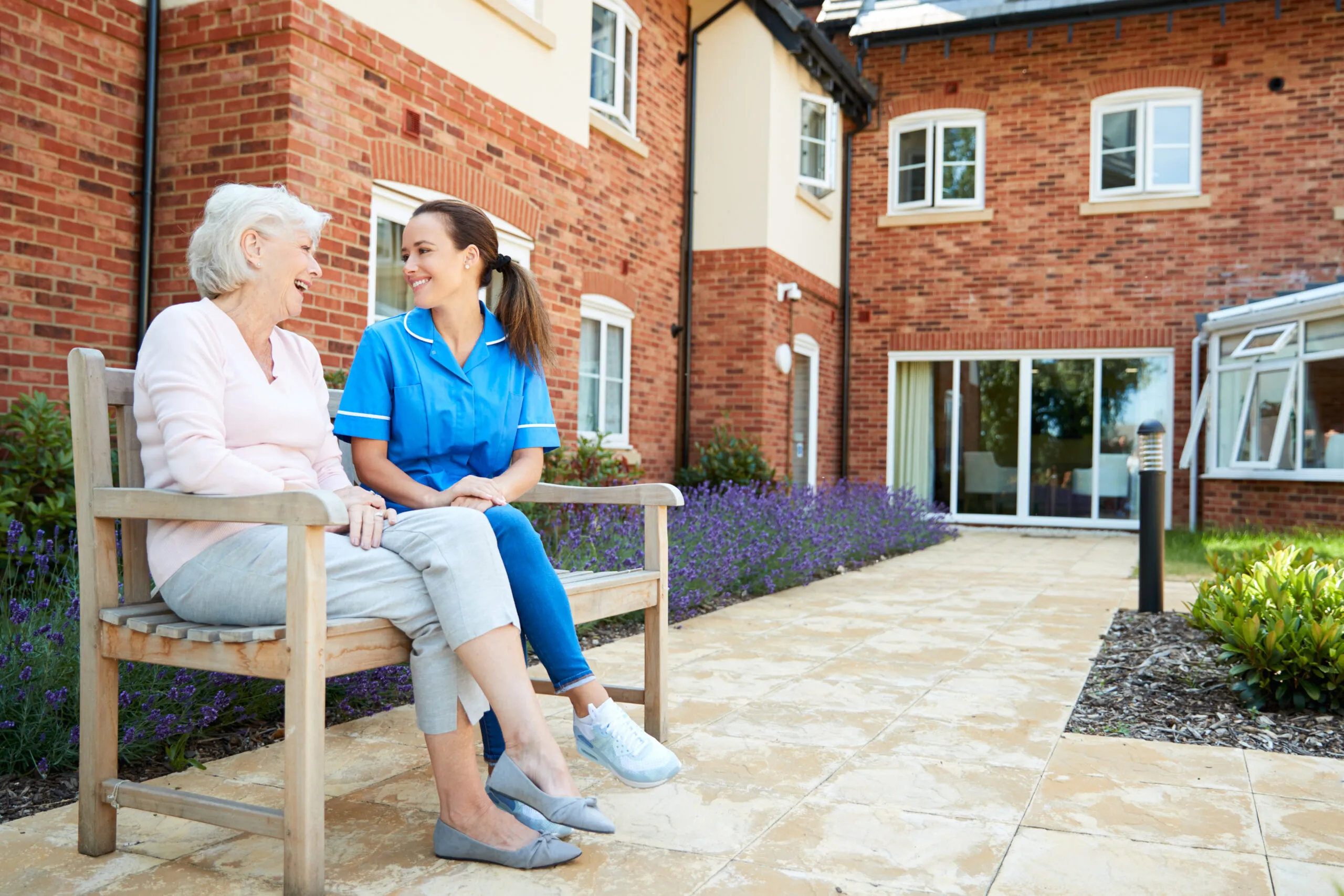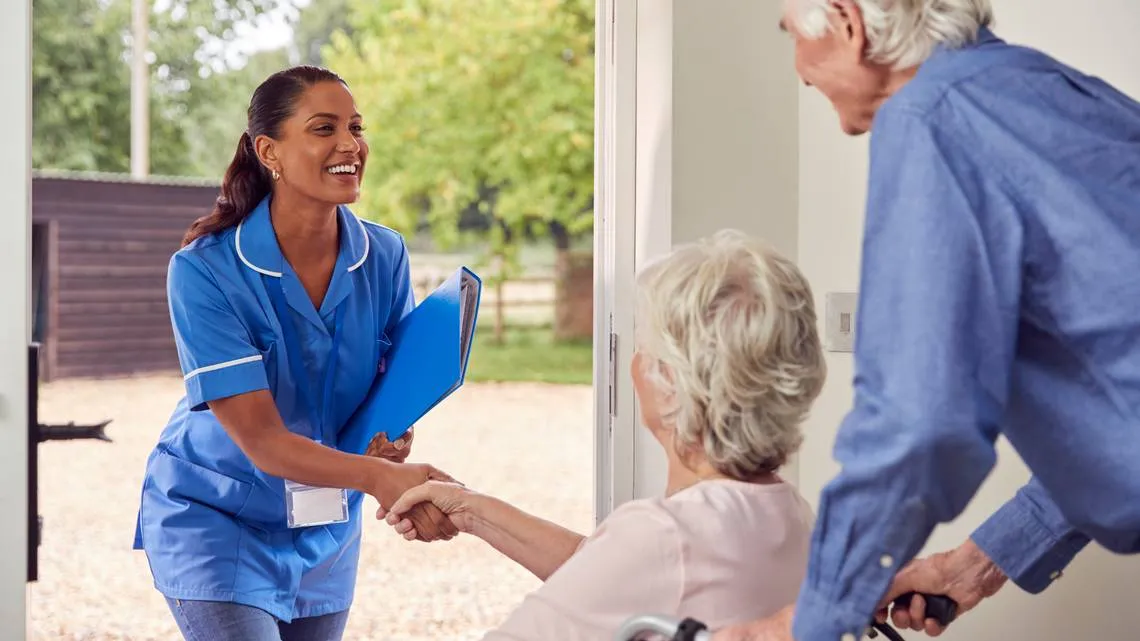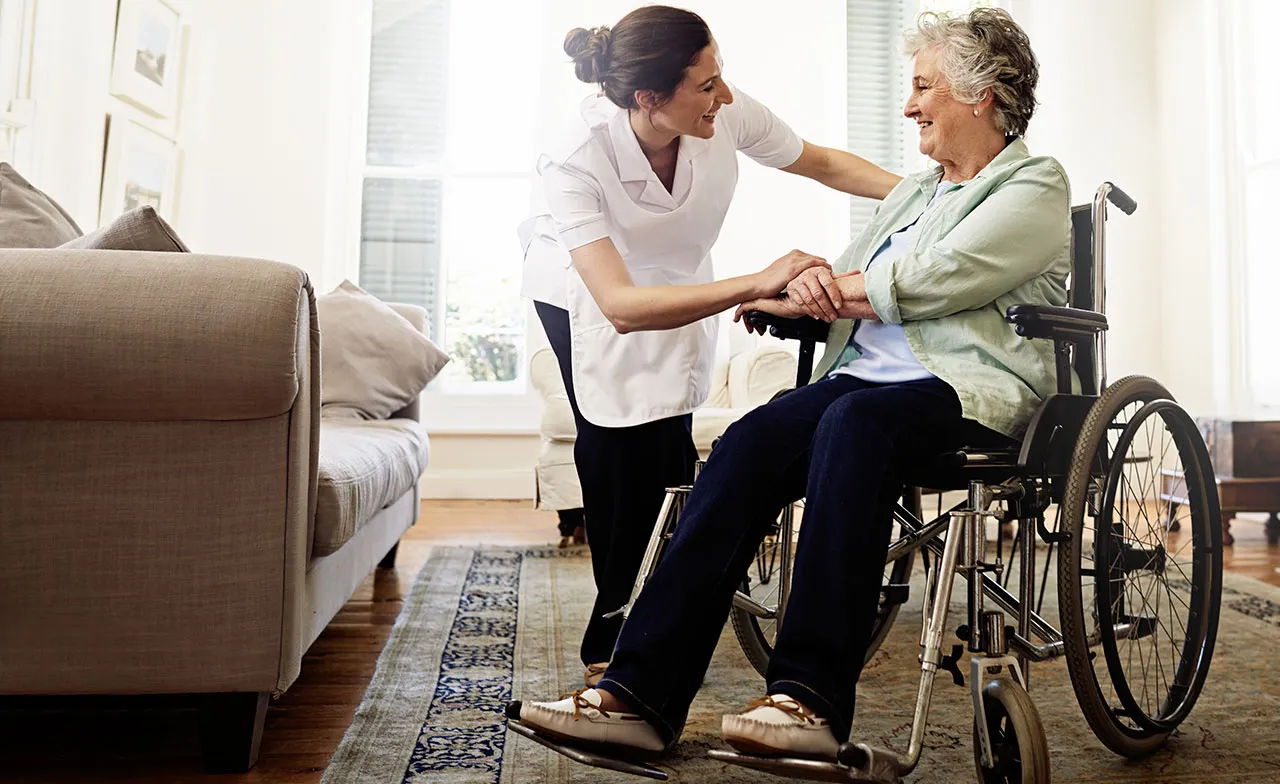As our loved ones age, they often face new challenges that can trigger anxiety. Whether it’s declining health, loneliness, or financial stress, anxiety can have a significant impact on their quality of life. Understanding and addressing these concerns is crucial to helping them maintain emotional well-being. Anxiety is not just a concern for younger people—it is also prevalent among seniors. In fact, many older adults experience excessive worry and fear, often linked to health issues, memory decline, or life changes such as retirement or the loss of loved ones.
Some common symptoms of anxiety in older adults include:
- Restlessness or irritability
- Sleep disturbances
- Fatigue or excessive worrying
- Avoidance of social activities
- Increased heart rate or shortness of breath
10 Proven Tips for Anxiety Management in Older Loved Ones
A lot of older people deal with anxiety, but with the right resources, it can be controlled. Making a calm space, pushing them to make friends, and teaching them how to relax can all improve their health. These tested tips will help you and your loved ones live healthier, happy lives by lowering stress and making you feel more emotionally stable.
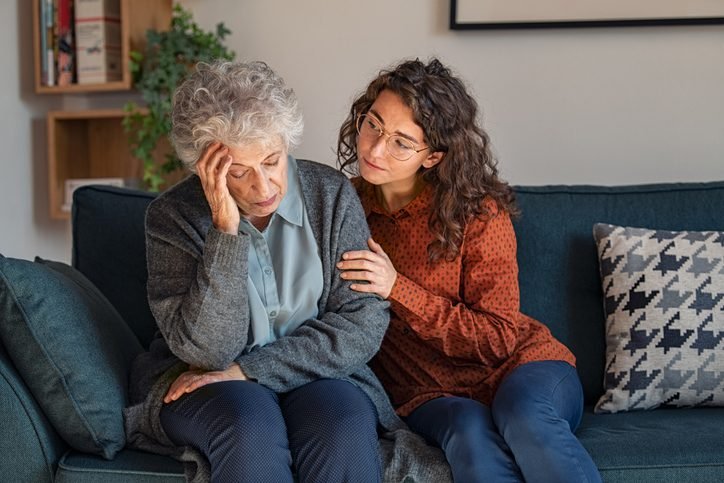
Create a Calm and Supportive Environment
An important thing that can help older people feel less anxious is a peaceful home setting. A place that is clean, well-lit, and well-organized can help them feel safe and secure. Some things that can help you relax are soft background music, soothing colors, and smells like lavender or chamomile. Keeping loud noises and quick interruptions to a minimum can also help people feel more stable. Adding loved photos and familiar things to a person’s environment can make them feel good and lower their stress. You can make them feel even better by suggesting that they do small activities like puzzles, knitting, or listening to soothing nature sounds.
Encourage Regular Physical Activity
Working out naturally lowers stress and makes it a lot easier to deal with worry. Walking, yoga, stretching, and tai chi are all gentle activities that can help your circulation, raise hormones that make you feel better, and lower stress. Every day sessions of just 15 to 30 minutes can make a big difference. Being active also helps you sleep better and think more clearly, which can make you feel less restless and worried. When you take them for walks outside, they can soak up the sun, which raises their vitamin D levels and makes them feel better. If you can’t move around much, chair workouts or light resistance training can be great ways to keep your body and mind healthy.
Promote a Healthy Diet
Eating right is an important part of dealing with worry. Eating a lot of whole grains, fresh fruits and veggies, omega-3 fatty acids, and other brain-healthy foods can help keep your mood stable. Salmon, walnuts, flaxseeds, and leafy greens are some foods that can help reduce inflammation and anxiety feelings. Additionally, staying hydrated is very important, as not drinking enough water can make you tired and confused. Cutting back on caffeine, refined sugars, and processed foods can help keep your mood stable and stop you from getting angry. Blood sugar spikes can make you feel jittery, so eat small meals often. Supporting the drinking of herbal teas like chamomile and peppermint can naturally help you rest and sleep better.
Maintain a Consistent Routine
Setting a regular daily routine gives you a sense of security and control, which lowers your worry. Structured meal times, regular sleep routines, and planned activities are all good for seniors. Having daily habits that you stick to can help you deal with stress and stop feeling unsure. A healthy breakfast, some light exercise, and a relaxing hobby can all be part of a set morning pattern that can help you feel good. Setting times to do things like planting, reading, or watching their favorite shows helps them stay stable. Light stretches or relaxing music in the evening can help the body relax and get ready for a good night’s sleep.
Encourage Social Connections
Loneliness is a major cause of anxiety in older people, and social interactions can help fight it. Regular phone or video calls with family and friends help people feel closer to each other and calm down. Senior clubs, church gatherings, and volunteer work are all examples of community activities that help people make friends and feel like they belong. Getting visits from family and friends or planning trips can make them feel better. Adopting a pet can help people who have trouble with social anxiety by giving them company and mental support. For some people, even small exchanges with neighbors or caretakers can help their mental health and give their daily lives meaning.
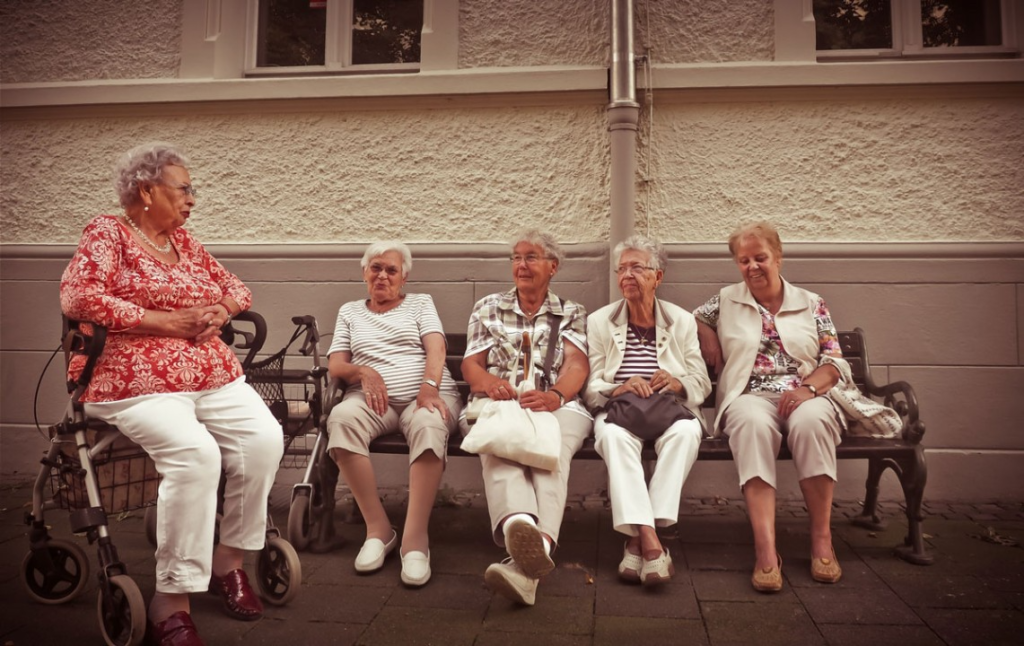
Teach Relaxation Techniques
Teaching seniors easy ways to relax can help them deal with stress better. Deep breathing, meditation, or progressive muscle relaxing are all great ways to calm down and release stress. Focusing on mindfulness tasks like writing in a journal, listening to nature sounds, or practicing gratitude takes attention away from things that make you anxious. Minds can relax by doing gentle things like drawing, knitting, or listening to relaxing music. Visualization exercises, in which they picture a calm scene, can also help calm their minds. By being patient and supportive while teaching these methods, you can make sure that they feel comfortable using them in stressful situations. This will make them more emotionally resilient overall.
Address Sleep Issues
Not getting enough sleep is strongly linked to having more worry. Setting up a relaxing routine before bed can help you sleep better and feel less restless at night. Telling them not to eat big meals, drink coffee, or look at electronics before bed can help keep their sleep habits in check. Keeping their bedroom cool, dark, and quiet helps them rest. You can make a good sleep setting by using weighted blankets, aromatherapy, or soft music. Before bed, reading or listening to guided meditations are both relaxing tasks that tell the brain it’s time to relax. If you still can’t sleep, you might need to talk to a doctor about natural remedies or other treatment choices.
Encourage Open Communication
Hearing seniors’ fears and concerns without judging them is a huge relief. They will feel understood and encouraged if you let them talk about their fears. Reassuring them and confirming how they feel builds trust and mental safety. It’s easy for them to share their thoughts when they check in regularly, whether it’s through casual talks or planned meetings. Another way to help them feel better is to encourage them to join support groups or go to therapy. Listening to their problems without giving right away solutions can sometimes help them feel heard, which can strengthen their sense of connection and lower their feelings of being alone or helpless.
Limit Exposure to Stressful News
Constantly hearing bad news can make older people more anxious. Cutting down on the time you spend on social media or watching upsetting news can keep you from feeling stressed out for no reason. You can change their attention by suggesting that they do things that make them feel better, like reading positive stories, watching funny shows, or listening to music. Giving them different things to do for fun, like puzzles, gardening, or art projects, keeps their thoughts active in a healthy way. By suggesting set times and lengths of time to watch the news, you can make sure they stay aware without feeling too much. Mindfulness in how we take in knowledge is good for our mental health and emotional stability.
Look Professional Help When Needed
If worry really gets in the way of your daily life, you need to see a professional right away. A doctor, therapist, or counselor can look at your symptoms and suggest treatments like cognitive-behavioral therapy (CBT) or ways to rest. You might think about medication in some situations, but first you should try non-medical measures. For each person, professional help gives them coping strategies that are just right for them. By encouraging regular check-ups, you can be sure that your worry isn’t caused by a health problem. If seniors get help early, their symptoms won’t get worse, they can regain their confidence, and their overall mental health will improve, leading to a more peaceful and happy life.

Conclusion
Managing anxiety in older loved ones requires patience, empathy, and constant support. Encouraging a healthy lifestyle, social engagement, and relaxation techniques can significantly improve their well-being. By making a stable, comforting environment and getting professional help when needed, you can help them lead a calmer, happier, and more fulfilling life.


